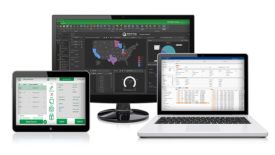Home » Keywords: » enterprise resource planning (ERP)
Items Tagged with 'enterprise resource planning (ERP)'
ARTICLES
Column | Fellow Traveler
The Quality function should have a meaningful role in the qualification and selection of vendors.
Read More
Software
ERPs Remain Highly Beneficial, but Success Depends on the Right Plan and Approach
The key to ERP success is starting off on the right foot.
February 25, 2025
Software
Evolving ERPs – Key Trends to Drive Business
When it comes to ERP solutions, knowing and understanding these trends allows businesses to take stock of what is important and how to prioritize goals and needs.
January 2, 2025
Software
Move Forward, Not Backwards in 2025: A Manufacturing Tech Outlook
The manufacturing sector may be facing challenges, but the future is full of possibilities for those willing to innovate, adapt, and invest in their digital future.
December 2, 2024
Software
Embracing the Future: Why Businesses are Migrating to SaaS for Quality Management
It is projected that SaaS will power about 85% of all business applications by 2025
November 14, 2024
Quality 101
Understanding the Fundamentals of a Manufacturing ERP System
The common purpose of all ERP systems is to enable operational excellence, profitability and growth.
April 11, 2024
Software & Analysis
3 Software Trends Shaping Manufacturing
Quality professionals need to be concerned with software outside the realm of enterprise quality management systems (EQMS).
November 15, 2023
Software
3 Ways Manufacturers Do More with Less
Imagine having an ERP system built specifically for your business.
November 3, 2023
Column | Darryl Seland
From the Editor: Riddle Me This
Aristotle and self-drive cars.
March 14, 2023
Software & Analysis
Make A Quality Part On Time Every Time With ERP Software
With modern ERP software, scrapping non-conforming parts can and should happen in real time.
March 10, 2023
Stay in the know with Quality’s comprehensive coverage of
the manufacturing and metrology industries.
eNewsletter | Website | eMagazine
JOIN TODAY!Copyright ©2025. All Rights Reserved BNP Media.
Design, CMS, Hosting & Web Development :: ePublishing













